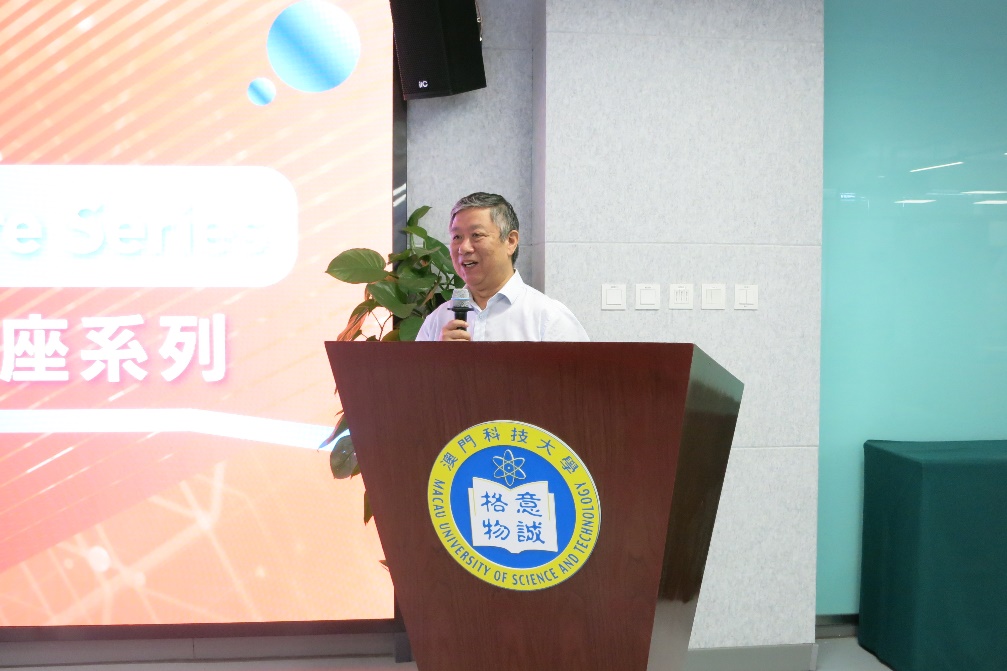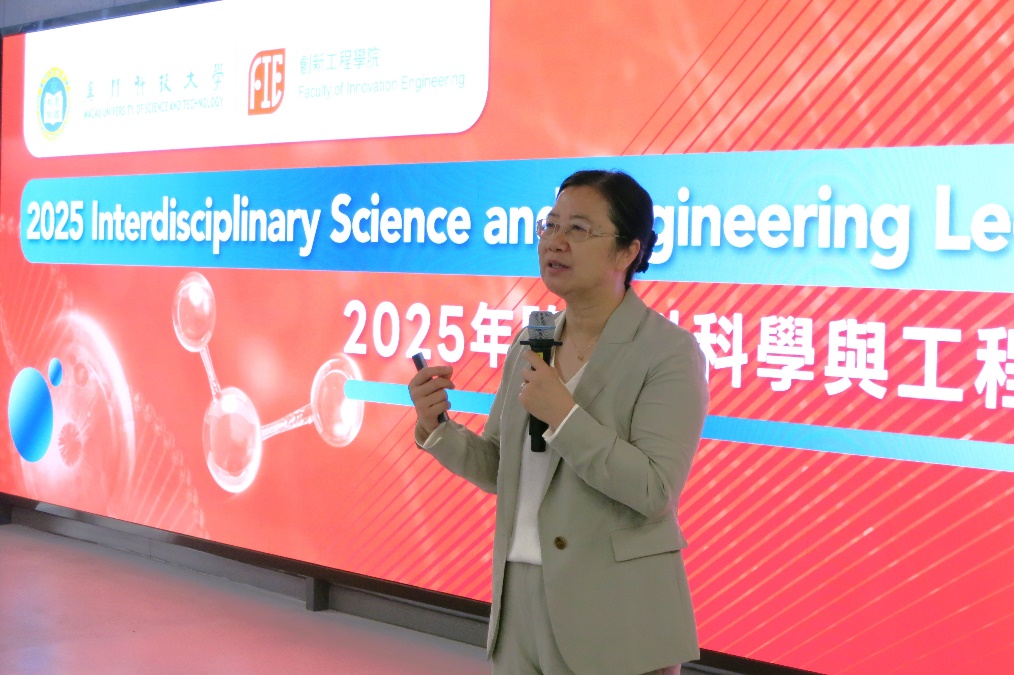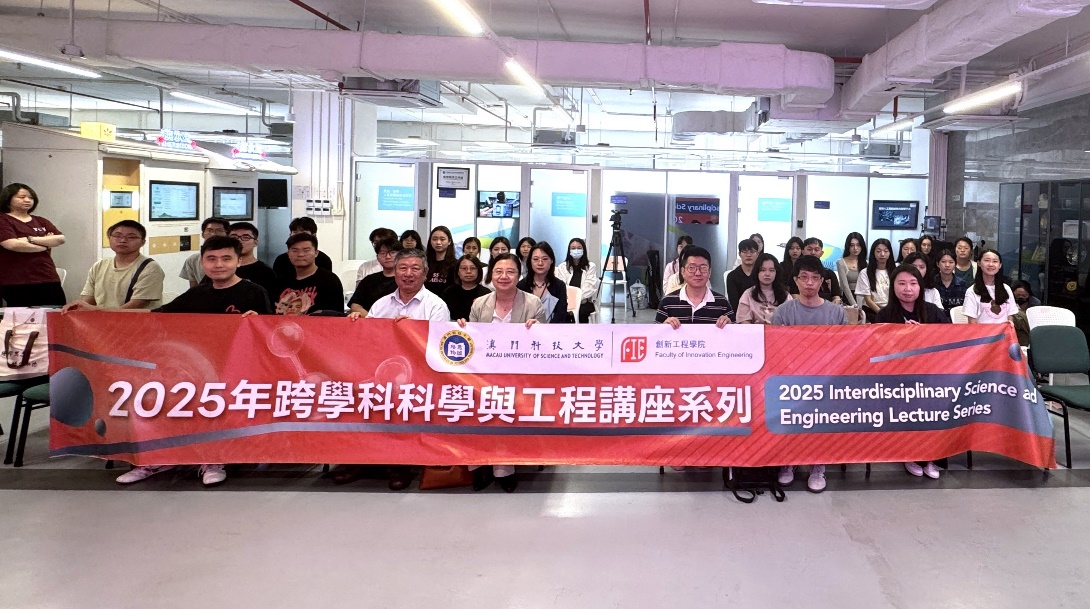To promote academic exchanges and knowledge sharing, and enhance the knowledge and understanding of science and engineering fields among college students and teaching staff, the Faculty of Innovation Engineering of MUST conducts the Interdisciplinary Science and Engineering (ISE) Lecture Series (2025) by inviting well-known scholars and professionals from different fields to share their insights on the latest research results and application practices in science and engineering. The fourth seminar of the ISE Lecture Series were held on the morning of April 29, 2025 at the MUST LIU’s Innovation and Technology Center.
The lecture was hosted by Professor Ma Yibing, the Head of Department of Environmental Science and Engineering, and attended by Assistant Professor Wu Yang, Assistant Professor Li Ying, Assistant Professor Wang Qun, and Assistant Professor Jiang Yanan from the Department of Environmental Science and Engineering. Faculty of Innovation Engineering sincerely welcomed the graduate students and postdoctoral researchers from the FIE, as well as people interested in science and engineering to participate in this ISE Lecture Series and discuss the importance of interdisciplinarity studies and future development directions.

Professor Ma Yibing was hosting the lecture
The fourth lecture of the series, "Grassland changes and adaptive management on the Qinghai–Tibetan Plateau" was given by Professor Wang Yanfen, Vice President of the University of Chinese Academy of Sciences. In the speech, she introduced that the grasslands of the Qinghai–Tibetan Plateau (QTP) serve critical functions, e.g. sustaining biodiversity, acting as vital carbon sinks, maintaining ecological productivity, and supporting pastoral economies. These fragile systems face transformative pressures from concurrent climate change and human interventions, though the relative dominance of these drivers remains contested. Professor Wang examined four decades of grassland evolution (post-1980s) and evaluated global change impacts on vegetative communities and edaphic characteristics. Satellite-derived normalized difference vegetation index (NDVI) data – a proxy for photosynthetic activity – revealed overall greening trends since the 1980s, yet with marked spatial heterogeneity and localized declines. While rising temperatures emerge as the primary driver of NDVI increases, thermal amplification has paradoxically intensified water stress in arid regions (<100 mm annual precipitation), partially explaining geographic disparities in vegetation responses. Adaptive management has enabled successful rehabilitation of degraded grasslands, becoming significant contributors to net primary productivity gains post-2000.

Professor Wang Yanfen was giving the speech
The lectures series is an important initiative of the Faculty of Innovation Engineering to cultivate outstanding talents with innovative thinking and interdisciplinary abilities. Lecture topics will cover a variety of fields, such as artificial intelligence, environmental engineering, materials science, and biomedical engineering, etc. Participants have the opportunity to learn from experts in academia who introduced cutting-edge technologies and research progress, and provided an in-depth discussion of challenges and opportunities in related fields for college teachers and students to stimulate innovative thinking in science and technology. The Faculty of Innovation Engineering will continue to hold more academic lectures to provide more practical information and platforms for our teachers and students to promote interdisciplinary integration and sharing of academic achievements, and to cultivate more outstanding leaders in science and engineering disciplines.

Group Photo





